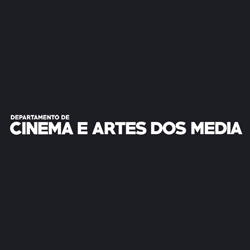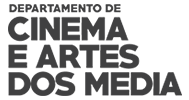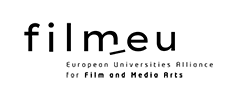
The International Journal of Film and Media Arts is an online semiannual publication focusing on all areas of film and media arts research and critique, namely animation, television, media arts, video games, fine arts, sound and their varied social and cultural forms of expression and materialization.
The IJFMA is accepting submissions of full papers, book reviews and curatorial articles for its second issue, to be published in the Spring of 2016, on the general theme of new forms of documentary.
Call for papers: vol. 1, no. 2
The second number of the International Journal of Film and Media Arts is dedicated to New Forms / Apparatus of Documentary: Interactivity and Fine Art. Its purpose is to reflect on the emergence of two new documentary languages – the webdocumentary and the documentary as a video/film installation.
The notion of documentary film has expanded since new forms of narratives have been developing along with digital media. We need to rethink the relation film/screen/viewer, in the contemporary era of documentary narrative.
Documentary festivals increasingly include sections for trans/cross interactive media works, e.g., IDFA DocLab in Amsterdam or FIDLab in Marseilles. Interactive documentaries like Alma, A Tale of Violence(2012) or Prison Valley(2010) have proved that webdocumentary has its own languages and aesthetic qualities. We must also question whether the webdocumentary terminology includes too many subgenres (from IDOC to Cross Platform) and if the designation interface-film, proposed by Marida Di Crosta (2009), is accurate.
Alongside the rise of webdocumentary, documentaries are increasingly exhibited in galleries, museums and spaces suited for the Fine Arts (Païni, 2002). On the one hand, there are artists who are interested in the documentary (Harun Farocki, Anri Sala, Ursula Biemann) and on the other hand there are many documentary filmmakers who present or transpose their work to video installations (Wang Bing, Bill Morrison, Avi Mograbi, Pedro Costa, Susana de Sousa Dias and others). They are part of the recent category "Exposed Cinema".
In both webdocumentary and exposed cinema, documentary integrates multimedia as video, photography, graphic design, animation and 3D.
It is now essential to rethink cinematic experience in its practice and in its perception because documentary works are often transversal and multiform. However, Raymond Bellour (2014) said that film can not be fragmented, neither in its presentation, nor in its perception. Is this argument legitimate, since the objectsturn out to be different?
Can we consider that the nature of documentary is not the same? Can we separate the documentary film from webdocumentary or from documentary as video installation when it comes to practice (in the act of creation) or to perception (passive or (inter)active)? Are the artists who use documentary as artistic media the new plasticiens-cinéastes?
Submission
The IJFMA is accepting papers that reflect on documentary as webdocumentary and documentary as film/video installation; analyses of a particular work; and testimonies or interviews with directors who work in this genre or use this language.
Curatorial section
The curatorial section provides researchers and artists with open, experimental and creative presentation tools of media arts' research and provides readers with interactive research experiences. It combines inter-media modes of display using multiple text design mixed with image, motion and sound linking solutions. Contributions regarding international / Portuguese webdocumentary and documentary as video installation are welcome.
Editors
- Manuel José Damásio
- ECATI, ULHT
- Paulo Viveiros
- ECATI, ULHT
- Inês Gil (Guest Editor)
- (ECATI, ULHT)
Publication schedule
- Call for papers
- 15 September to *15 December 2015*.
- Communication of decision to authors
- 15 February
- Publication
- *May 2016*
Early submission is encouraged.
Please refer to Author Guidelines, the Call for papers, for further information or visit IJFMA site
Other inquiries should be sent to ijfma@ulusofona.pt





